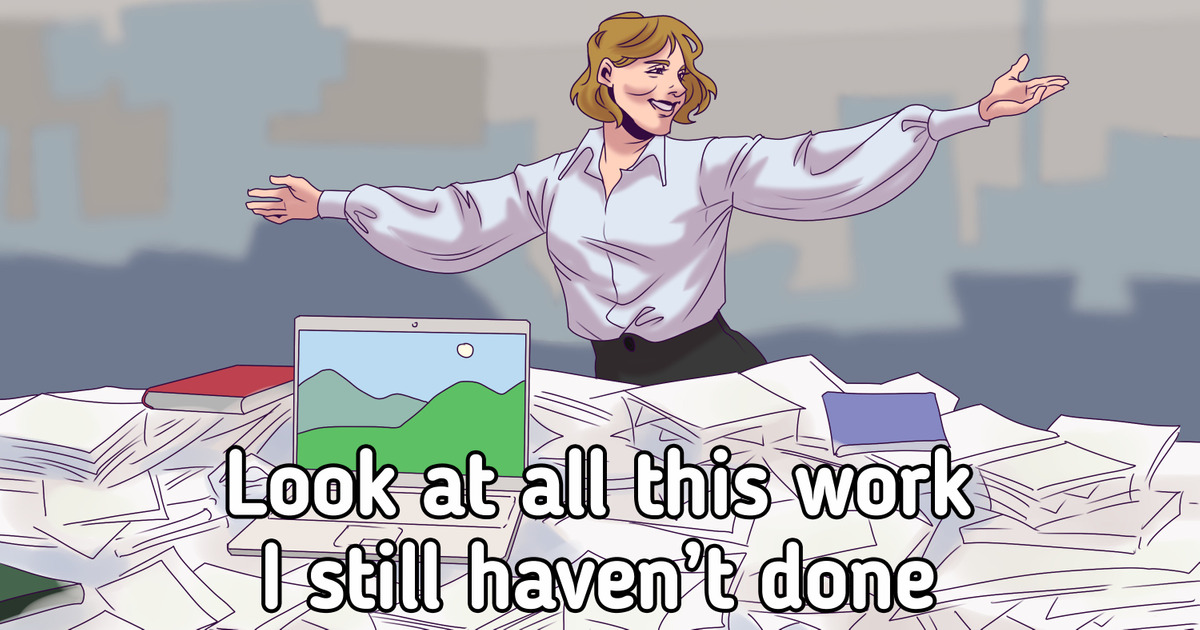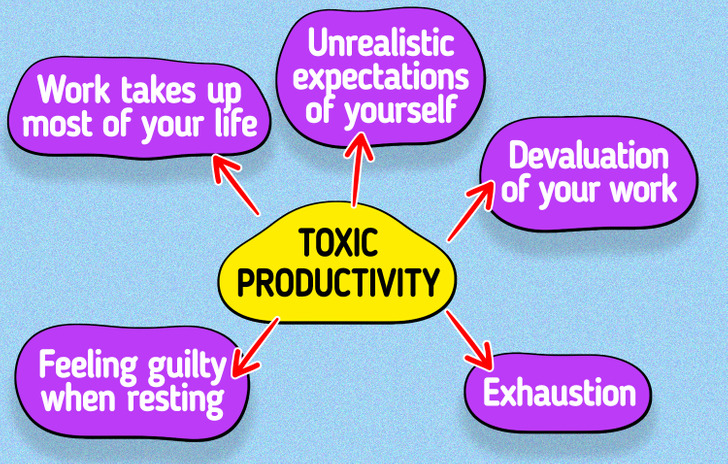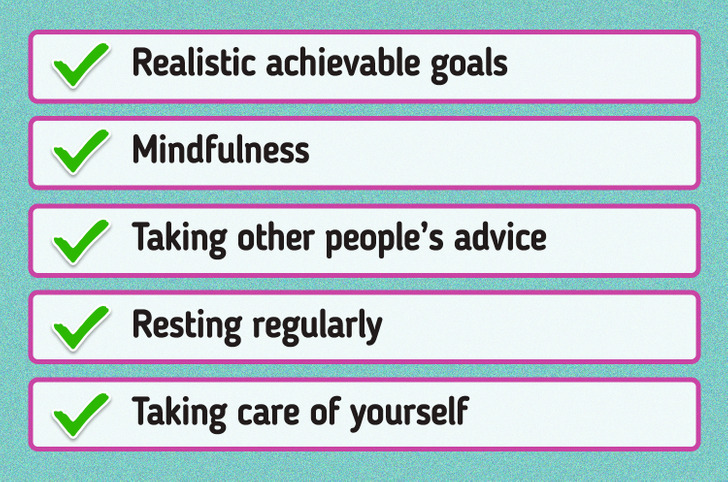What Toxic Productivity Is

It seems that productivity is definitely a good thing that lets us achieve career and life success. However, if we lose a certain balance, the result might end up being completely opposite.
5-Minute Crafts is going to tell you about toxic productivity, how to not fall victim to it, and what you can do to achieve success and not harm your health.
❗ Important: This article is for informative purposes only and can’t replace a medical consultation. Every individual case has to be examined and solved by an expert.
Definition
In order to understand what toxic productivity means, we need to define the following terms.
Productivity is a combination of motivation and hard work, being able to work for a certain amount of time to achieve maximum results.
Toxic behavior is a type of human action that can harm a person, their goals, and everyday life.
What toxic productivity is

The main difference between toxic productivity and normal productivity is the need to be productive all the time, at any cost, no matter what it does to your health, relationships, or life in general.
The main reasons why people go from “good” productivity to the toxic kind are:
- Wanting to look as efficient as possible
- Cultural bias for “doing”
- Trying to look better than other employees and fighting for their career
- Not being able to get distracted from work that is accessible 24/7 due to technology
- Striving to demonstrate how much they’re doing
- Using all their free time for work instead of rest (like, for instance, when you start working remotely and free up the time you used to spend on commuting, filling it with extra work)
The problem here is that being constantly busy doesn’t make you better or more successful. On the contrary, it slows your progress down, and you lose touch with your family and friends.
Indicators

- Work takes up so much time of your life that it harms your health and personal relationships. So you start neglecting essential needs, such as sleep, food, going to the bathroom, and communicating with your relatives. The same goes for neglecting personal responsibilities.
- People have unrealistic expectations. They take on more responsibilities and duties than they can handle. Most likely, they won’t be able to deal with such a load, and it will just add more stress.
- Resting is hard. When a person is not working, they feel guilty. Having fun, including communicating with family, seems like a waste of time.
- People feel exhausted and burned out.
- People never feel satisfied and fall into the trap of “I could’ve done more/better.”
How to avoid toxic productivity

- Set realistic goals.
- Practice mindfulness. It’s important to understand that not all problems require your immediate attention. Experts recommend asking yourself this: “What is the worst thing that can happen if I take 24 hours to think about the problem before I do anything?”
- Listen to other people telling you that you’re working too hard.
- Don’t neglect rest. Make it an important part of your daily routine.
- Take breaks regularly because, in fact, they don’t decrease productivity — they actually increase it without harming your health.
- Pay attention to how you feel and take care of yourself.